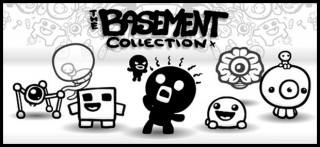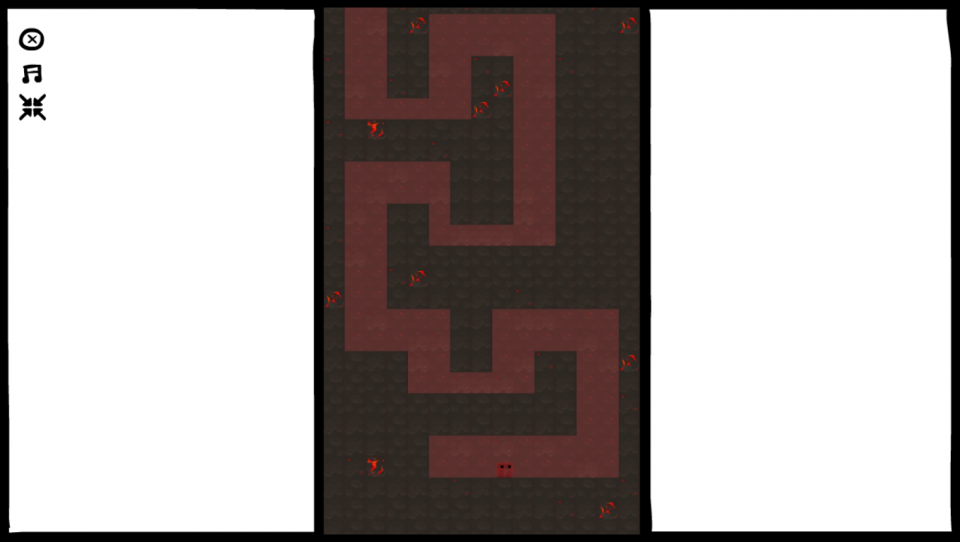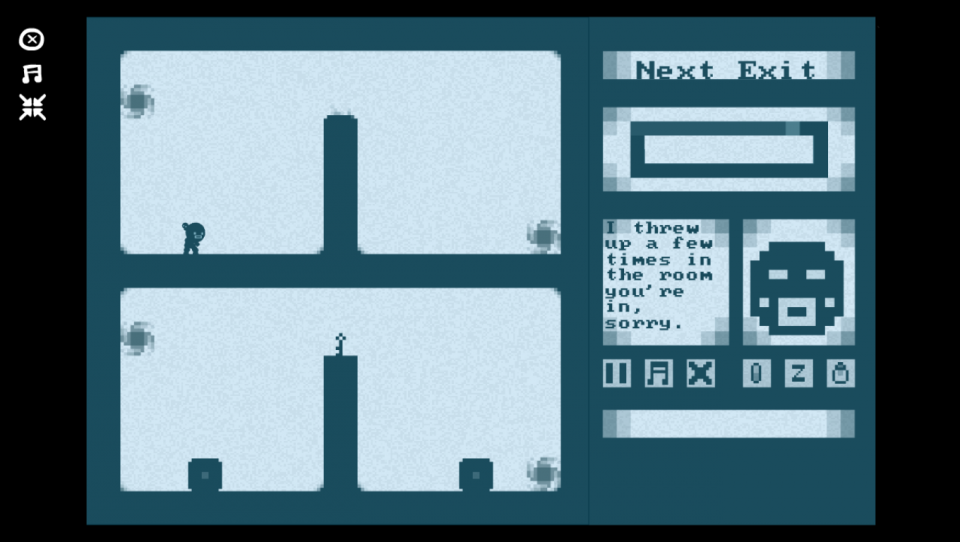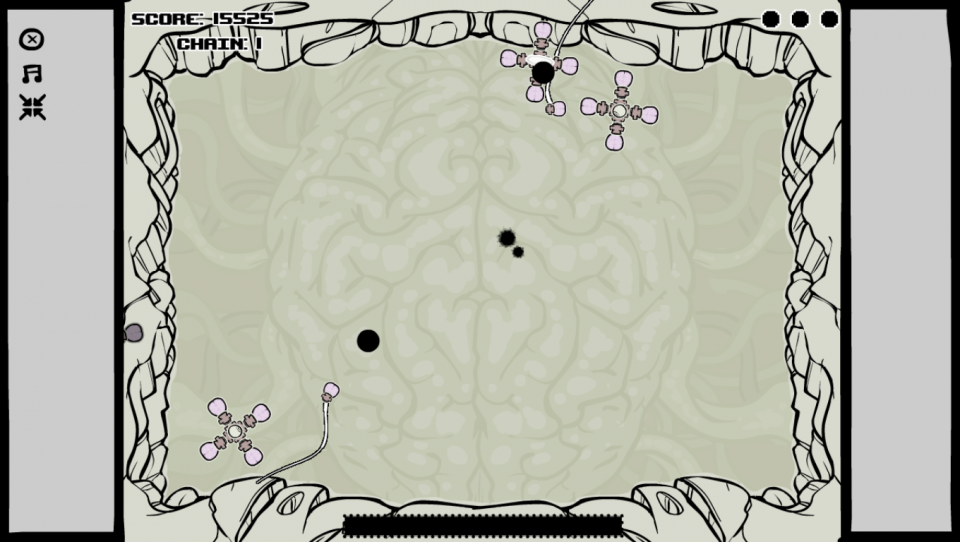Mento's May Madness More: #23 - Basement Collection
By Mento 0 Comments
May the Twenty-Third

The game: Edmund McMillen's The Basement Collection
The source: The Humble Indie Bundle 7
The pre-amble: The Basement Collection is a group of games that Edmund McMillen and his frequent partners - such as Florian Himsl (The Binding of Isaac), Tommy Refenes (Super Meat Boy) and Danny Baranowsky - worked on before he hit it big with Super Meat Boy. A batch of mostly experimental Flash games that are only linked by McMillen's whimsical and doodle-like art style and dark scatological humor, most of which come with additional multimedia materials.
The playthrough: OK everyone, strap yourselves in because this is going to be a long one. I didn't get far enough to unlock any of the bonuses so I'll be discussing the seven core games that are included in this package. As critical as I might sound with some of these, I have nothing but respect for McMillen and his collaborators - Super Meat Boy and The Binding of Isaac are two incredible games and some of my favorites in the increasingly big Indie market. I'm getting the sappy hero-worship out the way now because oh man did I not think much of the other games in this collection. But I'm getting ahead of myself. Let's start with something familiar.
Meat Boy is the Newsground prototype for what would eventually be Super Meat Boy. Its runaway success, especially in comparison with McMillen's other projects, is what ultimately convinced him to work towards a bigger and better version. I was one of the many people to originally play Meat Boy back in its heyday, but it's hard to play Meat Boy again after SMB. The controls are stiff and the framerate is oddly low considering its a simple Flash game (this is actually a recurring problem with the games in this collection for whatever reason). As impressive as it is (and was!) for a browser game it really pales in comparison with the amount of sterling work that went into its remake's nonpareil controls and graphical fidelity. It does compensate for this by being a mite bit easier however and it's a definite curio for Super Meat Boy fans if they've never encountered it before.

Aether is a bit more of a slow-paced exploration game where a young boy riding an enormous octopus takes off into the sky to the stars beyond. So pretty straightforward, then. Unfortunately I got so agitated by its annoying swinging mechanics - the early part of the game involves you latching onto clouds and swinging oneself higher - that I basically quit before the game could begin proper.
Time Fcuk is one of those very commonly seen puzzle-platformer browser games with an idiosyncratic presentation. The chief gimmick of Time Fcuk is the ability to switch between dimensions - depicted as different color palettes - while an enigmatic narrator talks to the player in a series of cryptic messages. I got a ways into it before deciding to move onto the other games. McMillen clearly dabbled in Indie platformers with pretentious aspirations before he managed to break away from that unfortunate tendency with a regular platformer that was just insanely good instead. I'm really finding it hard to care about these games, for serious.
Coil appears to be a short story interspersed with interactive "instances" which the player needs to solve before they move onto the next piece of plot. It seems to play around with McMillen's frequent themes of childbirth and really messed up psychological problems. As with Time Fcuk I found it mostly unbearable and quickly quit once I reached the second puzzle and had no idea how to continue. These "voyage of discovery" "interactive experiences" quickly wear out my patience these days. Like Indiana Jones (especially post-Crusade), they really only belong in a museum.

Spewer is an interesting if, once again, rather gimmicky 2D platformer. It doesn't reach for the artistic, focusing as it does on a small blobbish lifeform that uses its own vomit to project itself higher and further and can subsequently re-devour their emesis for future use. It's a very gross central device and one worthy of McMillen's inimitable fascination with the grotesque. I didn't really get used to how the projection worked and quit once the tutorials had run their course. It didn't seem as if you could get much lift without requiring some "peak of the jump" precise timing. And I believe I've mentioned before now how much I enjoy precise timing in a puzzle game.
Triachnid puts you in the multiple clawed feet of its eponymous three-legged creature as you attempt to make your way through a series of terrains by using the mouse to launch each foot forward to clasp the ground before moving the next foot forward, and so forth. It's an incredibly slow and tedious way to get around and being instantly killed by a hidden time limit (via an earthquake) and having to restart didn't really endear the game to me either. It's almost self-deprecating to put a game as broken and unfun like this on your big portfolio project thing.
Finally, we have Grey Matter. Unlike the others in this collection, Grey Matter is a more of a shooter than a platformer. Well, it's really more of an anti-shooter. The goal of Grey Matter is to get around the enemies bullets and ram into their weak point to kill them. The player has no other offensive capabilities, but you do have a few defensive options which can be acquired by sacrificing a portion of your score. The enemies all have exposed brains, but it's sometimes tricky to actually reach them without colliding with a lethal part of that enemy such as its tail or mouth. The weak points are a light brainy pink while the lethal zones (and bullets) flash, which makes them easy to spot in the midst of all the chaos. It's a curious take on the usual dual-stick shooters, if not amazingly fun to play for extended periods.

Overall, I can't say I enjoy too many of these. Without being too crass, it's kind of explicable why it took so long for McMillen to get to where he is today. But there's no denying he finally hit it out of the park with Super Meat Boy (and again with Isaac). Sometimes all it takes is a great idea, a bit of cash and some time spent experimenting with some outlandish ideas. I guess? I don't actually know. Hell, if I did, I might still be in game design. (I feel like some "there's the big twist and the source of that negativity!" music should play here.)
The verdict: I... maybe? I feel I owe Coil and Aether another chance and Time Fcuk and Spewer might be worth sticking with a bit longer. I could also finish off the last few levels in Meat Boy too. I am kind of curious about those locked bonus features...

